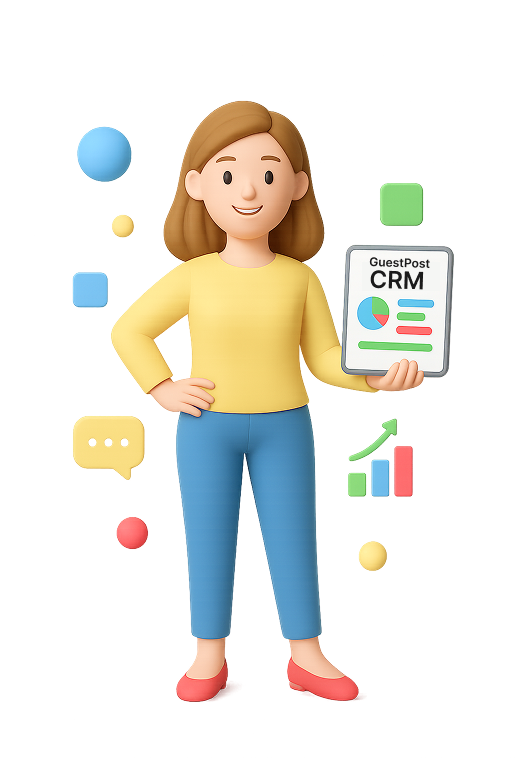Today, marketing isn’t just about selling products or services. It is about connecting with people, making a meaningful change, and building long-term relationships. As the marketplace is evolving with technological advancements, businesses must adopt more holistic approaches. The scope of marketing is no longer confined to traditional strategies. It has now become data-driven, technological, and consumer-focused.
Businesses are adopting digital marketing practices to expand the reach and visibility of their brand. This has resulted in a significant transformation of the advertising landscape, making marketing more dynamic and evolved. Platforms like Analyzingmarket.com provide valuable insights and analytics that help brands refine their strategies. While traditional marketing relies on mass communication, digital marketing uses analytics and personalization to outreach niche audiences.
In this article, we will explore the scope of marketing, its nature, functions, and growing importance in today’s digital world.
What Is Marketing?

Marketing is the process of promoting and delivering products or services to the target audience. It involves identifying the right audience and understanding their requirements/preferences. Businesses then design products/services to meet those requirements. They convey value to customers and deliver quality products/services.
Marketing is a building block of every business. It is a multifaceted field that:
- Drives business growth.
- Generates profit.
- Fulfill customer's needs.
- Builds relationship between business and consumers.
With the rapid technological developments, it has become easier to analyze market trends. Businesses can now understand customers’ preferences in real time. Marketing is a comprehensive approach to introducing your brand presence in the industry, attracting new opportunities and audience.
What Is the Nature of Marketing?
The scope of marketing encompasses a range of activities, from market and audience research to sales promotion & distribution.
- Dynamic: Marketing is not a static field. It is always changing and evolving. It adapts its strategies and methods to changing market trends and customers’ preferences.
- Consumer-focused: The customers are at the center of the marketing. From understanding their needs and wants to delivering desired products/services, everything revolves around them.
- Business goals fulfillment: Every business has its unique goals and target. Marketing helps a business reach those goals, outlined by companies.
- Value-oriented: Today, just selling products is not enough. Customers look for personalized experience along with products/services. Hence, companies must create values that resonate with consumers deeply. Clearly conveying the brand voice and intent helps maintain a long-lasting relationship with customers.
- Data-driven: Digital marketing analyzes huge amounts of data to analyze audience preferences, shopping patterns, predict future trends to provide personalized marketing services.
- Collaborating with other business strategies: Marketing serves many purposes. It partners with several creative promotional strategies to reach a wider audience and provide better results.
Now that we have understood the nature of marketing, let’s look at some of its main functions.
Important Functions of Marketing
The scope of marketing functions highlights how business operates and grows. Some key functions are discussed below:
Market Information
Gathering and analyzing market trends is an essential function of marketing. It includes thoroughly understanding target customers and finding the answers to questions such as:
- What do they want?
- In what quantity?
- At what price?
- When do they want it?
- Where do they want (location)?
- How do they want?
- What advertising technique would catch their attention?
Collecting all the necessary and relevant information about customers’ interests and preferences is important to determine the best market opportunities.
Product/Service Management
The value associated with the products/services connect people with the brand. Designing and developing products that meet the needs of customers is of utmost importance. An attractive and better product sells more than an unattractive one. Clearly communicate what makes your product/service different from other competitors.
Pricing
Setting the price of the product/service is another important aspect of marketing. Pricing is a competitive metric that helps a brand position itself in the market. It is important to balance the pricing of goods & services with their production and delivery costs. The appropriate price helps boost the brand’s reputation in industry and among consumers. It determines how the audience values your brand.
Promotion
Promotion means introducing your brand to people. The goal is to be seen and recognized by as many audiences possible. Marketers adopt several promotional strategies to attract customers. Digital marketing such as content creation, email marketing, advertising, sales promotion, PR, social media marketing etc. boosts product sales. This strengthens the brand position in the market and promotes products or services on a larger scale.
Distribution
After promoting your goods & services, delivering them to your target audience comes next. Strong coordination between the production team and supply chain is crucial. Choosing the right distributing channels, whether digital or traditional, is about identifying your target consumers and where they expect to reach you.
An effective distribution strategy depends on transportation, storage & warehousing. The transport facility is required to get your customers their respective orders. Warehousing is needed to store the products in a safe place so that they can be delivered on demand. Making products available at physical and online stores is crucial for proper distribution.
Sales Management
Tracking sales is another key function of marketing. Identifying potential leads and turning them into sales increases the revenue. It helps businesses reach new customers and increases the budget to adopt new marketing and campaigning strategies. This also helps expand the scope of marketing and business.
Risk Management
The customer is the core element of marketing. Therefore, it is necessary for marketers to identify possible risks that may result in loss of customers and fix them. Marketers must ensure that there are 24/7 customer support services to address the grievances and inquiries of customers. It should assist customers with technical services, after-sales services, order placement, payment and maintenance services.
In this competitive marketing era, satisfying customers must be the top priority. This also helps build trust and credibility.
Read Also: How ScoopUpdates .com Delivers the Latest Insights in Tech and Marketing
Importance of Marketing: Why It Matters Now?

Marketing is an essential approach that builds brand awareness, drives sales and engagement. It is crucial in connecting people with the brand through appropriate channels. Here’s why marketing is important now more than ever:
Brand Positioning
Marketing helps brands position themselves in the marketplace. It introduces the products or services to the target audience. Your brand reputation depends on how effectively you market it. By promoting it on every social media platform and using PR strategies, convey its unique value to the customers that compels them to buy it.
Customer Relationship
It helps your products or services to connect with the right consumers. This helps to increase the visibility of your brand and reaches a wider audience. Providing personalized marketing experience helps build a long-term relationship with your customers. By offering custom deals, rewards and value offers will get you more customers. This will make the process engaging and allows you to take feedback from them.
Understand Customer Pain Points
With market research and analysis, it becomes easier to identify customers’ pain points and challenges they face. Addressing those issues and fixing them will provide a sense of security. Marketing can give us insights into customers’ habits and behaviors through feedback, survey and complaint forms. This will help to resolve their concerns and improve services.
Enhance Competitive Advantage
Marketing helps you recognize your competitors. It gives you a head start and allows you to design unique and innovative products that are different from your competitor. In a competitive marketplace, it is important to highlight unique features of your product that stand out. Marketing also helps you stay updated with the recent trends and strategies. It allows you to modify your approach to adjust with the changing trends.
Drives Sales and Growth
Advertising helps you attract new customers and boost sales. Use the right advertising strategies that will resonate with consumers and compel them to purchase products/services. Marketing influences customer decisions that help drive business growth and generate revenue. The better the marketing effort, the higher the sales.
Fuels Innovation
Marketing is not a static domain, it is dynamic, ever-changing and constantly evolving. The rise of digital marketing demands constant developments and creative innovations to sustain itself. Many advanced tools such as CRM, lead generation and AI are already transforming the marketing industry. The need for more efficient and advanced business strategies supports more future innovations and creative ideas.
Conclusion
Marketing is a powerful tool for modern businesses. The scope of marketing is vast and dynamic. It is no longer an option; but a necessity to build brand awareness, drive growth and implement effective strategies to attract new customers. The success of your products or services depends on how well you market them to the target audience. Even the best product will fail without a proper and consistent marketing strategy.
Businesses have come a long way from traditional marketing strategies like advertising and branding to digital marketing. As the digital economy evolves, the future scope of marketing will continue to expand. An effective marketing strategy bridges the gap between what a business offers and what people truly need. Marketing is a holistic approach to make your brand presence known and is involved in every part of business.





.png)
.png)


.png)